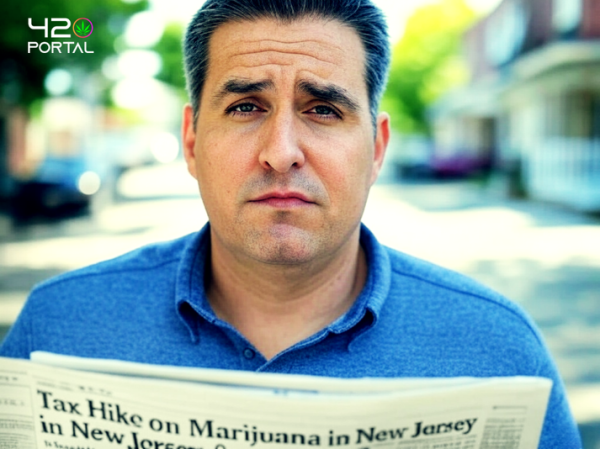New Jersey Governor Proposes Significant Cannabis Tax Hike

03/07/2025
New Jersey Governor Phil Murphy has put forward a bold proposal to increase the state’s special cannabis tax, aiming to raise it from $2.50 to $15 per ounce. This move signals a dramatic shift in the state’s approach to taxing legal marijuana, a burgeoning industry that has gained momentum since recreational use was legalized. The proposal has sparked debates among lawmakers, industry stakeholders, and consumers about its potential impacts on the market and state revenue.
The current tax rate of $2.50 per ounce applies to the sale of cannabis flower, a relatively modest figure compared to other states with legalized marijuana. Governor Murphy’s plan would see that rate soar to $15 per ounce, a six-fold increase designed to bolster state coffers. Supporters argue that the additional revenue could fund critical social programs, including education, healthcare, and infrastructure improvements. New Jersey has already directed cannabis-related income toward communities disproportionately affected by the war on drugs, and this tax hike could amplify those efforts.
However, critics warn that such a steep increase could stifle the legal cannabis market, which is still finding its footing amid competition from illicit sellers. Industry advocates contend that higher taxes might drive consumers back to the black market, where prices remain lower and unregulated products abound. Small businesses, in particular, fear that the tax burden could erode profit margins, making it harder to compete with larger corporations or neighboring states with lighter tax structures.
Consumers, too, are likely to feel the pinch. A $15-per-ounce tax could translate to noticeably higher retail prices, potentially alienating casual users or those with limited budgets. Some lawmakers have called for a more gradual increase, suggesting that a middle ground might balance revenue goals with market stability.
As the proposal moves through the legislative process, it will face scrutiny from all sides. The outcome could set a precedent for how New Jersey—and other states—navigate the delicate interplay between taxation, regulation, and growth in the evolving cannabis industry.
Reference
The current tax rate of $2.50 per ounce applies to the sale of cannabis flower, a relatively modest figure compared to other states with legalized marijuana. Governor Murphy’s plan would see that rate soar to $15 per ounce, a six-fold increase designed to bolster state coffers. Supporters argue that the additional revenue could fund critical social programs, including education, healthcare, and infrastructure improvements. New Jersey has already directed cannabis-related income toward communities disproportionately affected by the war on drugs, and this tax hike could amplify those efforts.
However, critics warn that such a steep increase could stifle the legal cannabis market, which is still finding its footing amid competition from illicit sellers. Industry advocates contend that higher taxes might drive consumers back to the black market, where prices remain lower and unregulated products abound. Small businesses, in particular, fear that the tax burden could erode profit margins, making it harder to compete with larger corporations or neighboring states with lighter tax structures.
Consumers, too, are likely to feel the pinch. A $15-per-ounce tax could translate to noticeably higher retail prices, potentially alienating casual users or those with limited budgets. Some lawmakers have called for a more gradual increase, suggesting that a middle ground might balance revenue goals with market stability.
As the proposal moves through the legislative process, it will face scrutiny from all sides. The outcome could set a precedent for how New Jersey—and other states—navigate the delicate interplay between taxation, regulation, and growth in the evolving cannabis industry.
Reference







